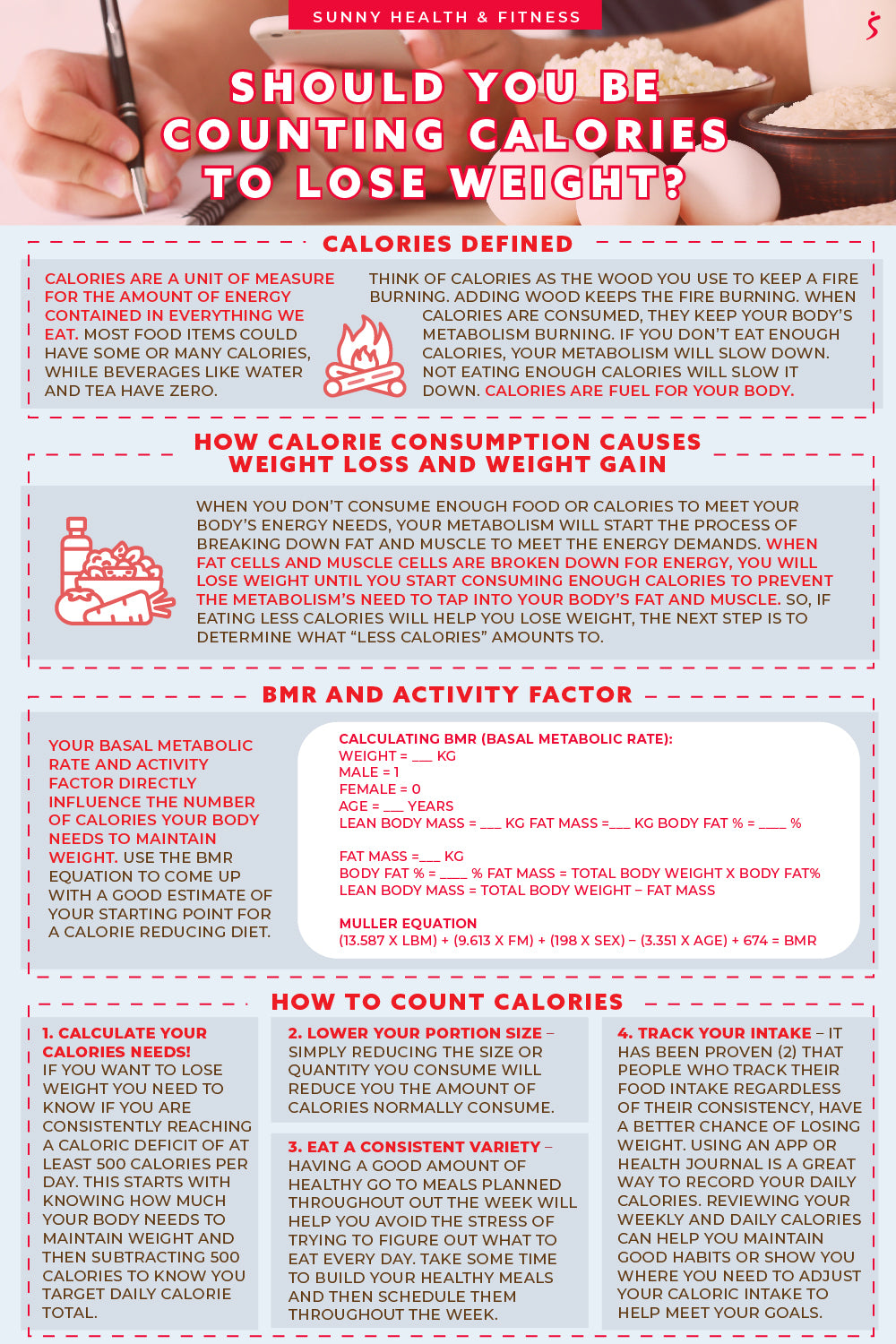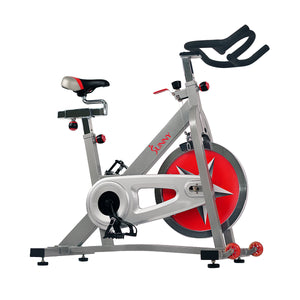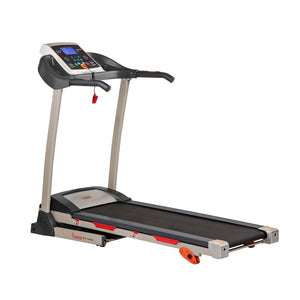Counting calories to lose weight is a strategy that’s been around for a long time. But does counting calories to lose weight actually result in weight loss? Unfortunately, the answer to this question is not a simple yes or no. To understand how counting calories affects your weight, we must first look at the reasons why you should care about the amount of calories you’re eating. Once you understand the importance of calories, you will have more motivation to analyze the amount of calories you eat each day and how it will affect how your body.
Calories Defined
The food and drink that you consume will most likely have some amount of calories in them. Calories are a unit of measure for the amount of energy contained in everything we eat. Most food items could have some or many calories, while beverages like water and tea have zero. I like to use a campfire analogy when describing what calories are and how they play a critical role in your body. Think of calories as the wood you use to keep a fire burning. Adding wood to a fire keeps the fire burning. Calories work the same way, except when calories are consumed, they keep your body’s metabolism burning. If you don’t eat enough calories, your metabolism will slow down. Just like a fire, if you don’t add wood, the fire will slowly burn out. While you cannot completely burn out your metabolism, not eating enough calories will slow it down. So just like wood is the fuel for a fire, calories are fuel for your body.
How Calorie Consumption Causes Weight Loss and Weight Gain
You may have heard that counting calories doesn’t matter when it comes to weight loss. If you have heard this before, ask your self this question. Will eating too many calories cause me to gain weight? The simple response to that questions is, yes. If you eat too much you will gain weight. So, if we can say that eating too many calories causes weight gain, why would we not say eating too little causes weight loss?
The truth is research (1) has concluded that weight loss can happen if people reduce their calorie consumption below their bodies’ need. The body does this in a very simple way. At any given point in your life, a healthy person will have some level of fat stored on their body in the form of fat cells. A person will also have a certain amount of muscle mass. When you don’t consume enough food or calories to meet your body’s energy needs, your metabolism will start the process of breaking down fat and muscle to meet the energy demands. When fat cells and muscle cells are broken down for energy, you will lose weight until you start consuming enough calories to prevent the metabolism’s need to tap into your body’s fat and muscle. So, if eating less calories will help you lose weight, the next step is to determine what “less calories” amounts to.
BMR and Activity Factor
Now would be a great time to review my previous article on “Understanding Fat Loss”. In that article, I explain how your Basal Metabolic Rate and Activity Factor directly influence the number of calories your body needs to maintain weight. Use the equation located in that article to come up with a good estimate of your starting point for a calorie reducing diet.
How to Count Calories
Counting calories can be as simple as adding up the big bold numbers located on the nutrition labels on most of the foods you eat. Unfortunately, many foods and beverages you consume do not have the calories readily available. This means you will have to take some time to request or look up the calorie amounts. While a simple google search will give you calorie amounts, you will need to know the volume or weight of the items you just ate to be able to determine the calorie amounts accurately. This is where most people get frustrated and start to give up on counting calories. It takes a great amount of effort and consistency to calculate your estimated calories based on your activity levels, add up the calories you eat for each meal, get your workouts in, and track your progress. To help make this process easier, I recommend taking the following approach.
- Calculate your calories needs – This is a must. If you want to lose weight you need to know if you are consistently reaching a caloric deficit of at least 500 calories per day. This starts with knowing how much your body needs to maintain weight and then subtracting 500 calories to know you target daily calorie total.
- Lower your portion size – Simply reducing the size or quantity of food and drink you consume will reduce you the amount of calories normally consume.
- Eat a consistent variety – You don’t have to use the chicken, broccoli, brown rice meal 20 times per week to reach your goals. However, having a good amount of healthy go to meals planned throughout out the week will help you avoid the stress of trying to figure out what to eat every day. When I plan my meals for the week, I usually give myself 5 options for dinner, 5 for lunch, and 3 for breakfast. Take some time to build your healthy meals and then schedule them throughout the week.
- Track your intake – It has been proven (2) that people who track their food intake regardless of their consistency, have a better chance of losing weight. Using an app or health journal is a great way to record your daily calories. Reviewing your weekly and daily calories can help you maintain good habits or show you where you need to adjust your caloric intake to help meet your goals.
To answer the initial question presented in this article, yes, counting calories will help you lose weight. Remember, simply adding up the calories you eat everyday will not lead to weight loss. Counting your calories will help you understand how much you are eating. Using that information to build a diet strategy revolving around reducing your calorie intake or increasing your calories burned will give you the best path towards consistent long-term weight loss.
(1) “Effect of Behavioural Techniques And Delivery Mode on Effectiveness of Weight Management: Systematic Review, Meta-Analysis And Meta-Regression”. National Library of Medicine National Center for Biotechnology Information, 2014, https://pubmed.ncbi.nlm.nih.gov/24636238/. Accessed 25 August. 2020.
(2) “Self-Monitoring in Weight Loss: A Systematic Review of The Literature”. National Library of Medicine National Center for Biotechnology Information, 2011, https://pubmed.ncbi.nlm.nih.gov/21185970/. Accessed 25 August. 2020.


























Add Your Name & Email
Please enter your name and email to continue.We won’t display your email publicly.